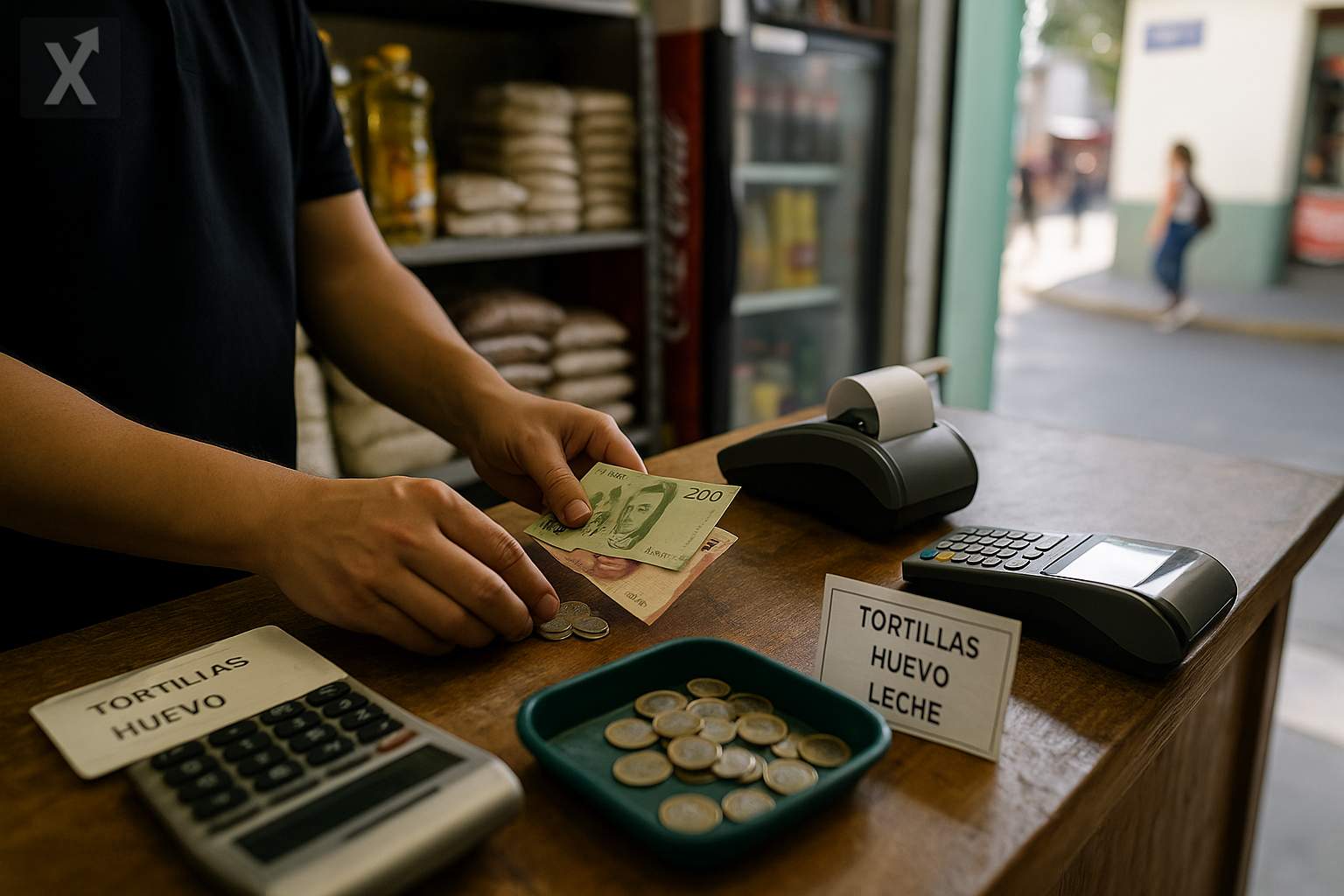The Female Face of Labor Informality in Mexico

More than half of the workers in Mexico are in labor informality, meaning they lack access to social security and other labor rights, even though many work for formally established companies and even for the government. So, what are the possible solutions to this issue? Establishing a care system and strengthening the productivity of micro, small, and medium enterprises (MiPymes) are urgent measures to tackle a challenge that affects 54% of the workforce in the country.
Demystifying Informality
The concept of informal workers goes beyond those who sell products on the street. As Ytzel Maya, Data Coordinator for Oxfam Mexico, explains, labor informality is multifaceted: it includes workers from various sectors, from agriculture to the government, as well as professionals who earn income through fees, who, despite paying taxes like income tax (ISR), do not have access to social security. The report titled "The Maze of Informality," produced by Oxfam and Mexico ¿Cómo Vamos?, reveals the different manifestations of this phenomenon. Contrary to the perception that informal workers are engaged in illegal activities or that everyone shares the same situation, the study states that 27.8% of people in this category work in the informal sector, 13.5% work in companies, government, and institutions, 9% are in agriculture, and 3.9% are in paid domestic work. Furthermore, men have earned more than women in three of the four types of labor informality, and this trend hasn't changed in nearly twenty years.
The Disadvantages of InformalityThis implies that informal workers do not choose their situation but are forced into it by structural circumstances. Moreover, being an informal worker is not beneficial: the average monthly wage in formal employment is 13,011.20 pesos, while in informal work it barely reaches 6,924.5 pesos. This means that what a person earns working informally barely allows them to afford 1.5 basic food baskets. The problem of informality is not only economic but also has a sociocultural background. According to the report, married women with children, especially in rural areas of the east or south of the country and with low levels of education, are the most affected. "Labor informality disproportionately affects women, as they are likely to fall into this situation when assuming caregiving roles. It is essential to implement a comprehensive care system so that these responsibilities do not hinder their personal and professional development," emphasizes the Coordinator of Oxfam Mexico. Delving deeper into how informality relates to care, it becomes evident that the more children a woman has, the greater the proportion of women in informal jobs. Therefore, one of the study's proposals is to establish a comprehensive care system that enables women and the general population to access quality jobs.
The Government's Role in This Issue
A Vicious Cycle of Informality and Low Productivity
According to Axel González, an expert from Mexico ¿Cómo Vamos?, informality and low productivity in MiPymes are two interrelated issues that feed off each other. Businesses with fewer employees, even if they are formal, are more likely to have their workers in informality, and hence, without labor rights. A staggering 95% of economic units are MiPymes, which by their very nature lack the financial, economic, and operational strength to formalize their jobs. Axel explains that evidence shows that this type of business has low labor productivity. "Low productivity and informality in Mexico are not separate problems; on the contrary, they reinforce each other, creating a cycle that hinders growth. We must focus on increasing productivity, especially among micro and small businesses, if we want to generate quality jobs and a stronger economy," he observes. Axel suggests strengthening MiPymes through simplified access to financing and differentiated social security contributions. This would allow these businesses to grow and offer formal jobs with access to social security, which in turn would reduce informality. He also points out that 2 out of 10 government employees work under informal conditions, so he proposes a review of hiring practices in the public sector to formalize employment and increase oversight in government institutions and companies that keep their employees in informal conditions. Finally, the study underscores the urgency for the government to increase resources raised for social security, as without these, it is impossible to guarantee labor rights for all people, regardless of their formal or informal status.
Labor informality in Mexico not only deprives people of fundamental rights but also limits the country's economic growth potential. Addressing this issue requires a comprehensive approach that not only considers the formalization of jobs but also the strengthening of MiPymes and empowering women. This could transform the economic structure and foster greater social inclusion, allowing for more equitable and sustainable development.





